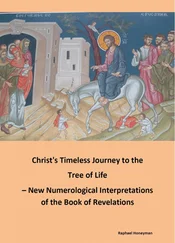As these arguments proceeded, Beveridge finally gave Butler the chance to get his Bill. Called down to Chequers in March 1943 by Churchill to help prepare his ‘After the War’ broadcast – the one which committed Churchill in principle to ‘cradle to grave’ social security and much else beside – Butler seized Winston’s new willingness to talk about post-war reconstruction and told him that he was drafting legislation. ‘To this he paid no attention at all. I repeated in a louder voice, “I am drafting an Education Bill.” Without raising his head from the papers before him on the counterpane, he said simply that I must show him my plans when they are ready and that he was sure they would be very interesting. I gladly left it at that.’ Butler promptly went to see the Treasury ministers and assured Sir Kingsley Wood and later his replacement Sir John Anderson that, despite the enormous capital and current spending involved in his plan, ‘full implementation would take at least a generation’. They therefore became ‘reasonable and helpful’ over finance, agreeing with Churchill that education was ‘the lesser evil than the Beveridge scheme’. 95In addition, no other minister on the home front had plans ready to launch – the advantage of Butler’s two-year run-in.
In June 1943 a White Paper was published, 96a few days later the Norwood report unsurprisingly supported its proposals, and in January 1944 the Bill, unaltered in substance from the White Paper, was given its second reading. James Stuart, the chief whip, saw the beauty of its 122 clauses and eight schedules being that ‘it would keep the parliamentary troops thoroughly occupied; providing endless opportunities for debate, without any fear of breaking up the Government’. 97Controversy remained over the church schools, particularly from the Roman Catholics. But Butler records that ‘despite the anxiety raised by this opposition, indeed largely because of it, there was a desire on the part of both government and back-benchers to get this matter out of the way before an election’. 98
The second reading proved placid and the Bill went into a committee of the whole house, to keep those MPs occupied. It took eight days to get through the first twenty-seven clauses, the closest call being when a Conservative, Mrs Thelma Cazalet Keir, tried to write in a date for the school leaving age to rise to sixteen. It was to be 1972 before that was finally achieved.
When trouble came, it proved to be not over the churches but over equal pay for women teachers. Butler opposed this measure, mindful of Churchill’s and the Treasury’s insistence on minimising cost. He attempted to justify his opposition by arguing that there would be widespread knock-on effects on civil service pay. Mrs Cazalet Keir, however, who managed the not inconsiderable feat of being both a Christian Scientist and teetotaller, and a member of the Tory Reform Group dining club, persuaded the group to back her amendment on equal pay which also gained much Labour support. The government, with some of the ‘less sprightly ministers’ failing to get out of Whitehall and into the division lobbies in time, went down by one vote – 117 to 116 – the coalition’s only significant defeat of the war years. Churchill, who felt that too much was being taken for granted about winning the war and who was irked at the continuing loss of by-elections, resolved to ‘rub the rebels’ noses in their mess’. With Labour ministers such as Bevin and Ede threatening their own side with resignation if the government lost, a confidence motion reversing the defeat was tabled. Churchill, needless to say, got a thumping majority.
But the government’s stance had two effects. Butler calculated that Churchill’s use of the brute club of a confidence vote paid ‘a handsome dividend’: ‘thereafter no member proved so bold as to press an amendment which was unacceptable to the Government if there was any prospect of its being carried’. That gave the remaining more controversial parts of the Bill an easier passage. 99Historians believe its other effect, however, was that, like the Beveridge vote, it contributed to Labour’s landslide the next year. Even the Economist at the time said it would reinforce the number of electors who ‘suspected that the Government was ruthlessly obstructing reform’. 100
In his memoirs Butler accused Quintin Hogg and the Tory reformers of an ‘overweening attitude’, describing the vote as ‘that fateful night’, 101while twenty years on again Quintin Hogg replied in his that the issue was about equal pay for women teachers’ equal work. ‘Even now I feel it difficult to see how any sane man or woman with an eye to the future, let alone the politically sensitive R. A. Butler, could have disagreed with Thelma or with us.’ It seemed ‘an elementary piece of social justice’ which needed to be agreed ‘if only as an example of the line which was expected to be taken in social policy after the war, and which was in fact so taken … the episode was bad for Churchill, bad for Rab, bad for the Conservative party and bad for Britain’. 102
That alarm over, the Bill proceeded smoothly, the third reading turning ‘almost into an embarrassing festschrift’. Sir Edward Campbell, the rather obscure Tory MP for Bromley said: ‘We called the old Act, the Fisher Act. How are we going to remember this Bill? Shall we not call it the Butler Act?’ 103So indeed it became. Churchill telegraphed his congratulations to Butler as it became law in August, telling him he had won ‘a lasting place in the history of British education’. 104The first of the five giants designed to combat Beveridge’s giant evils was in place. Implementation had barely started a year later, however, when this large step towards post-war reconstruction proved insufficient to persuade the electorate to trust the Tories with the rest of the task.
CHAPTER 5
Butler’s legacy
It shall be lawful for His Majesty to appoint a Minister whose duty it shall be to promote the education of the people of England and Wales and the progressive development of institutions devoted to that purpose …
Education Act 1944, first sentence
The effect as I see it will be as much social as educational. I think it will have the effect of welding us all into one nation, when it’s got thoroughly worked out, instead of two nations as Disraeli talked about.
R. A. Butler, speaking about the Education Act in a Central Office of Information film, 1944
BUTLER’S ACT was indeed a mighty creation. ‘To make a précis of it would take at least as long as to play a football match,’ Butler observed. 1It was, however, to prove as important for its omissions as its achievements, although those were numerous. First it settled, apparently once and for all, the religious question – though not quite in the way Butler and the Board of Education expected. Their original calculation was that only 500 of the 9000 Anglican schools would opt for what was from their own point of view the more costly independence of ‘aided’ rather than ‘controlled’ status. In fact 3000 chose the aided route. 2But the settlement, of which the Catholics soon took advantage without ever formally accepting it, did effectively remove religion as a central educational issue. Not until Kenneth Baker’s 1988 Education Act introduced opted-out grant maintained schools and Muslims began seeking their own state-funded schools did religious instruction again reach anywhere near the centre of the debate.
The Bill made secondary education to fifteen a reality for all, and made it free. Tuition fees in all maintained schools were abolished. The sole exceptions were the ‘direct grant’ independent grammars which were still able to charge fees for the non-state-aided places. The words ‘elementary schooling’ were consigned to the historical dustbin, although achieving the end of these ‘all-age’ schools would take a distressing twenty years finally to complete. Formal distinctions linking teachers’ salaries to the funding of different types of secondary school were in theory abolished, in practice made less stark. Free school milk, meals, transport and medical inspections, plus improved inspection procedures were all legislated for, and the obligations and powers of local education authorities to provide scholarships for higher education (student grants) were extended. Independent schools for the first time had to register and face inspection. In general, pupils were ‘to be educated in accordance with the wishes of their parents’ – a vaguely delineated and heavily circumscribed right for parents to choose their child’s school which would grow into a major battleground.
Читать дальше
![Nicholas Timmins The Five Giants [New Edition]: A Biography of the Welfare State обложка книги](/books/701739/nicholas-timmins-the-five-giants-new-edition-a-cover.webp)











